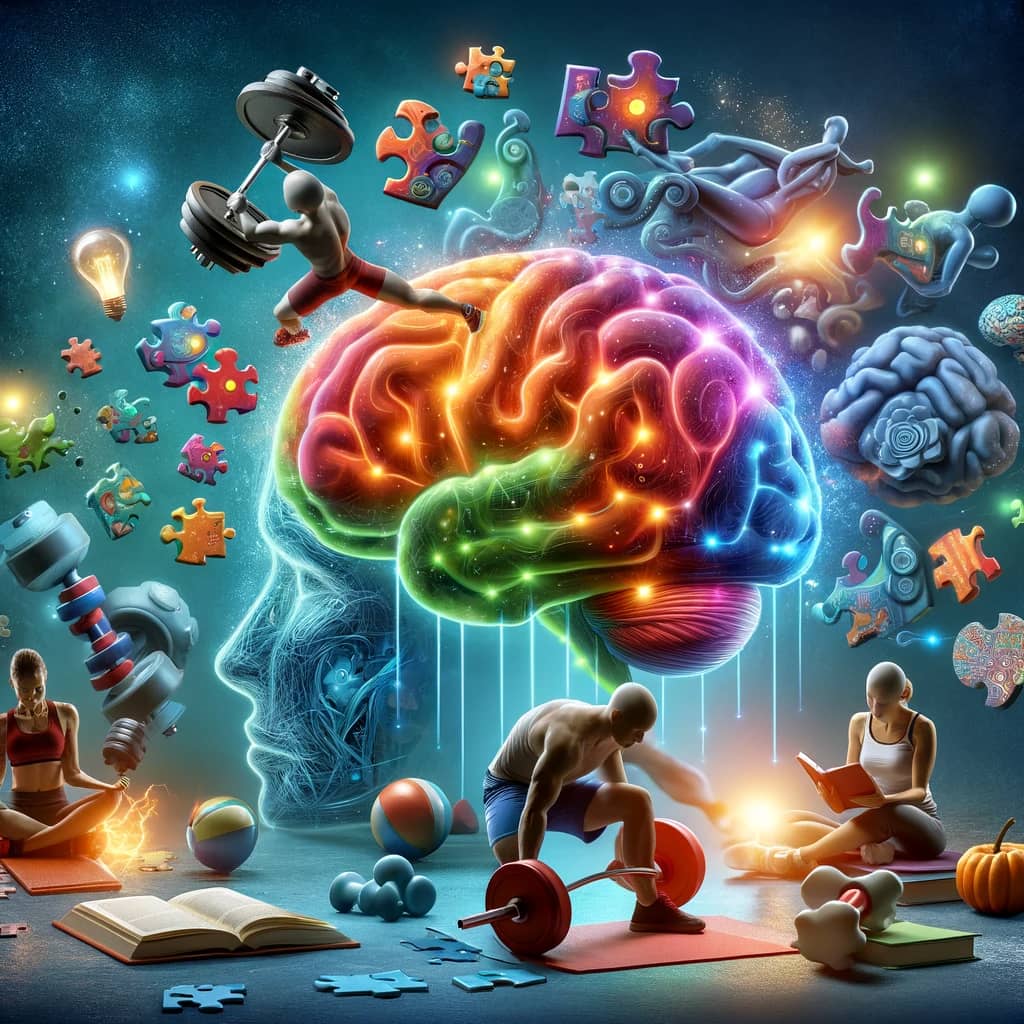Brain Training
Brain training involves engaging in activities designed to improve cognitive functions such as memory, attention, processing speed, and problem-solving skills. Just as physical exercise strengthens the body, mental exercises can sharpen the mind, making learning more efficient and effective.

Cognitive Flexibility
Engaging in varied mental exercises can enhance your cognitive flexibility, the ability to switch between thinking about two different concepts or to think about multiple concepts simultaneously. This is crucial for problem-solving and understanding complex ideas.
Neuroplasticity
The brain's ability to reorganize itself by forming new neural connections is called neuroplasticity. Regular, targeted brain training activities can harness this property to enhance cognitive capabilities.
Techniques for Brain Training:
Puzzles and Games: Engaging in puzzles like crosswords, Sudoku, or strategic games can stimulate your brain and improve problem-solving skills.
Learning New Skills: Picking up a new language, instrument, or hobby challenges your brain to navigate unfamiliar territories, strengthening neural pathways.
Memory Exercises: Techniques like the method of loci, mnemonics, or simply trying to recall detailed lists or sequences can significantly improve your memory.
Mindfulness Practices: Activities such as meditation or tai chi can increase focus and mental clarity by reducing stress and enhancing cognitive control.
Physical Exercise: Regular physical activity is not only good for your body but also boosts your brain. Cardiovascular exercises can increase brain plasticity and improve memory and thinking skills.
Healthy Diet: A diet rich in omega-3 fatty acids, antioxidants, and vitamins supports brain health and cognitive function.
How to Incorporate Brain Training into Your Routine
Daily Habits: Incorporate small brain training exercises into your daily routine, like doing a puzzle during your coffee break or practicing a new language for a few minutes each day.
Set Goals: Just like physical fitness, set specific, achievable goals for your cognitive improvement to stay motivated.
Track Progress: Keep a journal of the activities you do and any noticeable improvements in your learning or thinking.
Stay Curious: Cultivate a mindset of lifelong learning and curiosity. Regularly expose yourself to new ideas and experiences to keep your brain engaged.
References:
- "The SharpBrains Guide to Brain Fitness" by Alvaro Fernandez and Dr. Elkhonon Goldberg
- "Keep Your Brain Alive: 83 Neurobic Exercises to Help Prevent Memory Loss and Increase Mental Fitness" by Lawrence Katz and Manning Rubin
- "Brain Rules" by John Medina
- Peer-reviewed articles from cognitive science and neuropsychology journals